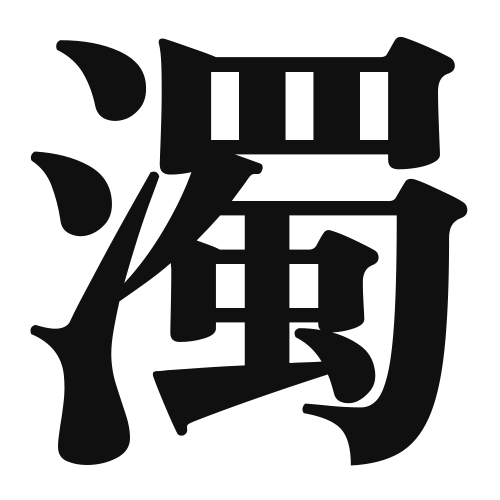1. Overview of Meaning
The kanji “濁” (daku) means “turbid” or “cloudy,” often used to describe liquids that are not clear. It can also refer to something that is impure or contaminated.
2. Formation and Radical
Formation of the Kanji: The kanji “濁” is a phonetic-ideographic character (形声文字). It combines the water radical (氵) on the left, indicating a relation to liquids, and the phonetic component “daku” (達) on the right, which provides the pronunciation.
Radical: The radical for “濁” is the water radical (氵), which is commonly found in kanji related to water or liquids.
3. Examples of Usage
Common Words and Phrases:
- 濁水 (だくすい, dakusui) – turbid water
- 濁音 (だくおん, dakuon) – voiced sound
Example Sentences in Daily Conversation:
- この川の水は濁っている。 (このかわのみずはだくっている。) – The water in this river is cloudy.
- 彼の声は濁音が多い。 (かれのこえはだくおんがおおい。) – His voice has many voiced sounds.
4. Synonyms and Antonyms
Similar Kanji:
- 清 (せい, sei) – clear, pure. This kanji represents the opposite quality of “濁,” indicating clarity and purity.
Antonyms:
- 清 (せい, sei) – as mentioned, it means clear or pure, contrasting with “濁.”
5. Cultural and Historical Background
Relation to Japanese Culture: The concept of clarity versus turbidity is significant in Japanese aesthetics, often reflected in art and literature. Clear water is associated with purity and beauty, while turbid water can symbolize confusion or impurity.
Proverbs and Idioms: One common saying is “濁りを取る” (にごりをとる, nigori o toru), which means “to clear away impurities,” often used metaphorically to refer to resolving conflicts or misunderstandings.
